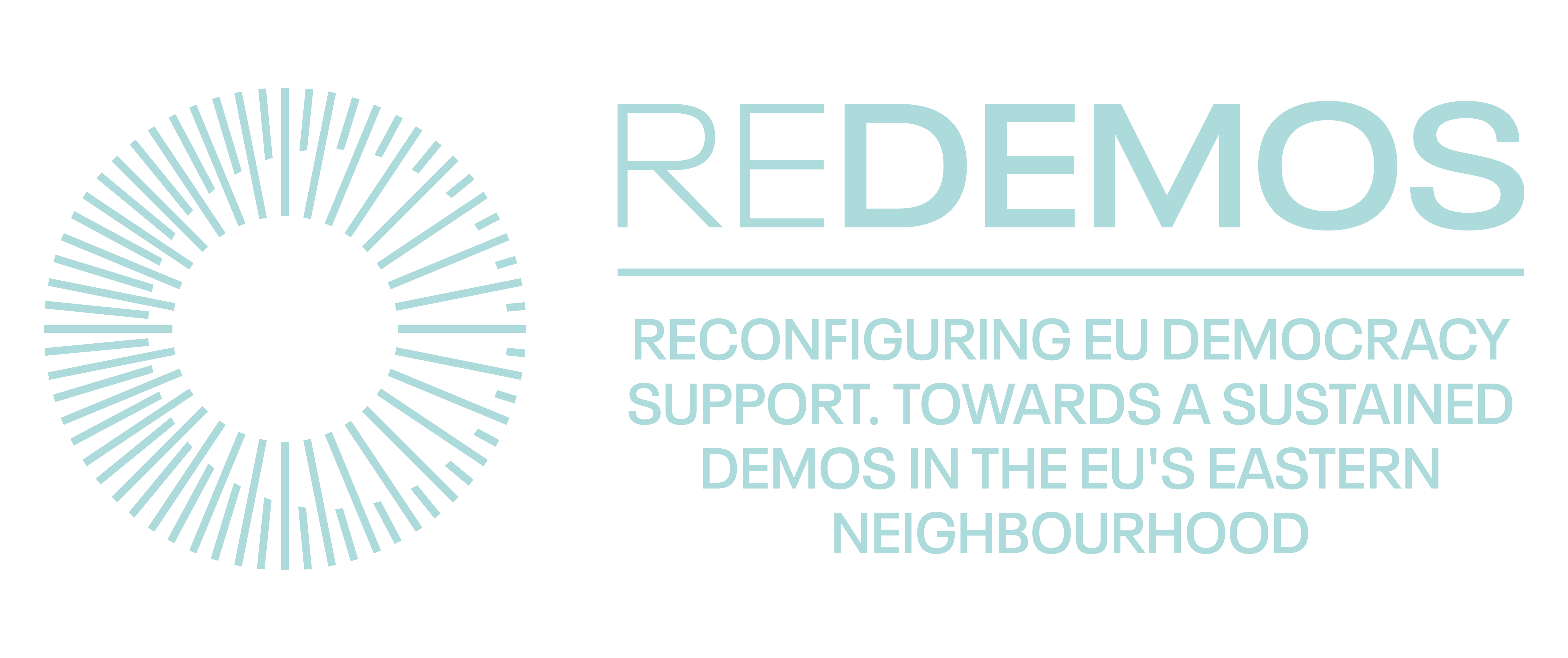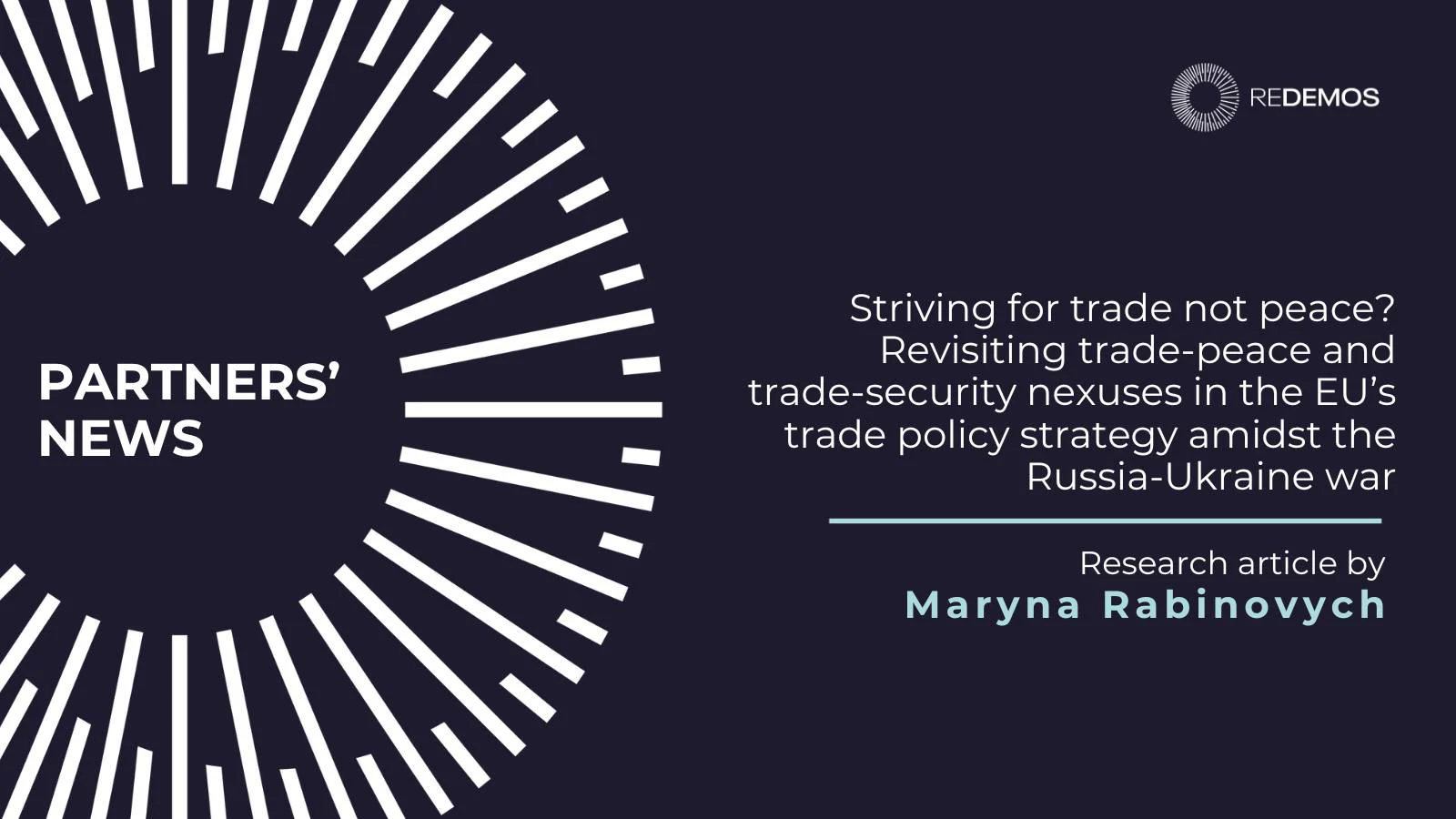In the article ‘Striving for trade not peace? Revisiting trade-peace and trade-security nexuses in the EU’s trade policy strategy amidst the Russia-Ukraine war’ published recently in the Journal of European Integration (Taylor and Francis Online), Maryna Rabinovych, a member of the REDEMOS Project team, embarks on a journey to debunk a prevalent misconception – the notion that the EU’s strategic framing of its trade with Russia, post the 2014 ‘Ukraine crisis,’ was cultivated under the banner of liberal peace logic. It has been suggested that the 2022 Russian invasion of Ukraine constitutes an ultimate failure of the ‘liberal peace’ hypothesis.
However, to challenge this argument, the author provides a ‘nuanced conceptualisation’ of the trade-peace and trade-security nexuses in EU trade policy and apply it to the case of EU-Russia trade relations (2014–2022). What emerges from her examination is that the trade-peace and trade-security connections within the EU’s approach to Russia are primarily shaped by bargaining and restrictive logics.
While the case of Russia’s war against Ukraine doesn’t immediately disprove the liberal peace theory, the author highlights that it does beckon a critical reconsideration of the intricate links between peace and security concerns embedded in the strategic and legal framing of the EU’s trade policy.
Source: Maryna Rabinovych (2023) Striving for trade not peace? Revisiting trade-peace and trade-security nexuses in the EU’s trade policy strategy amidst the Russia-Ukraine war, Journal of European Integration, 45:7, 1075-1098, DOI: 10.1080/07036337.2023.2232940


